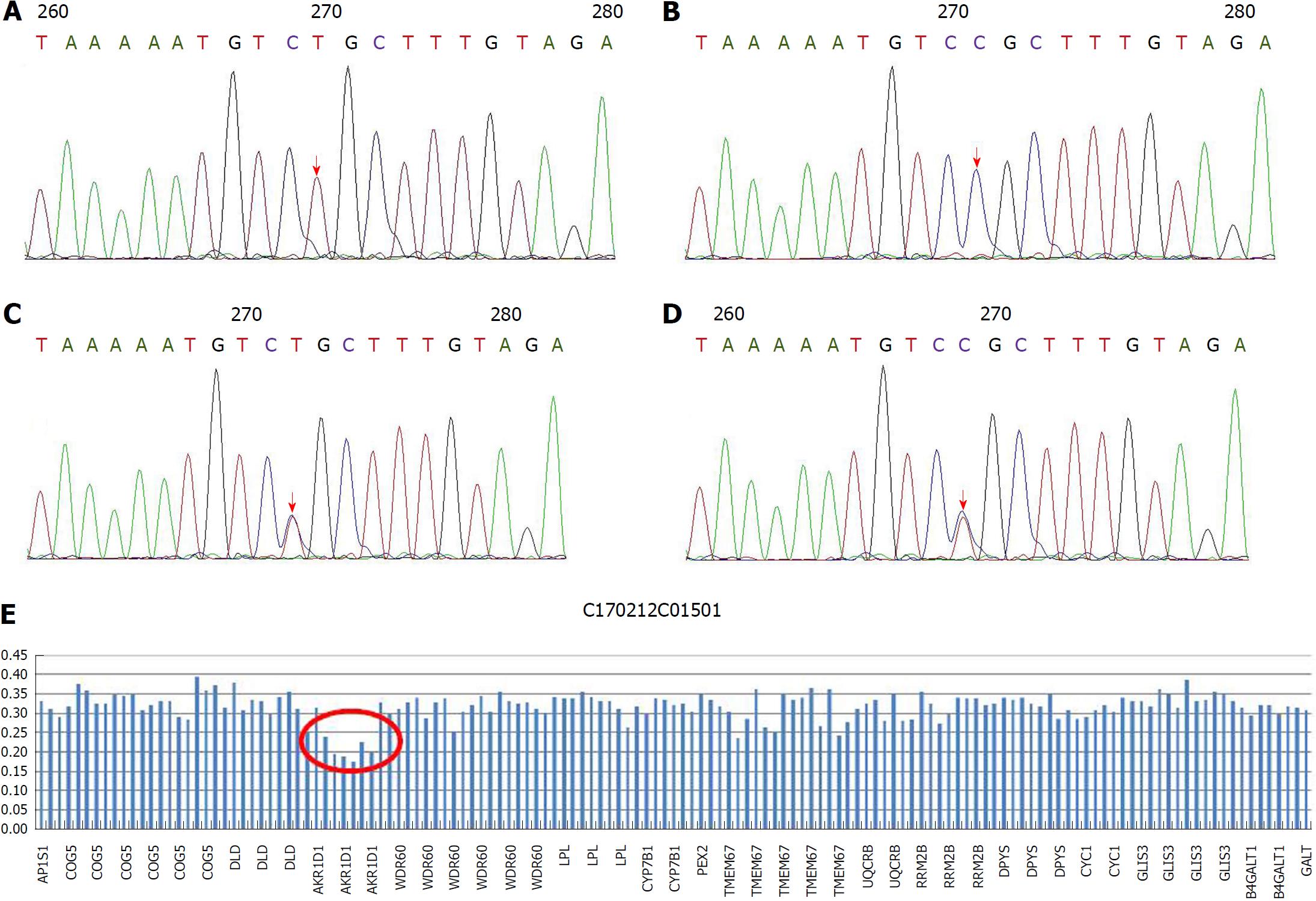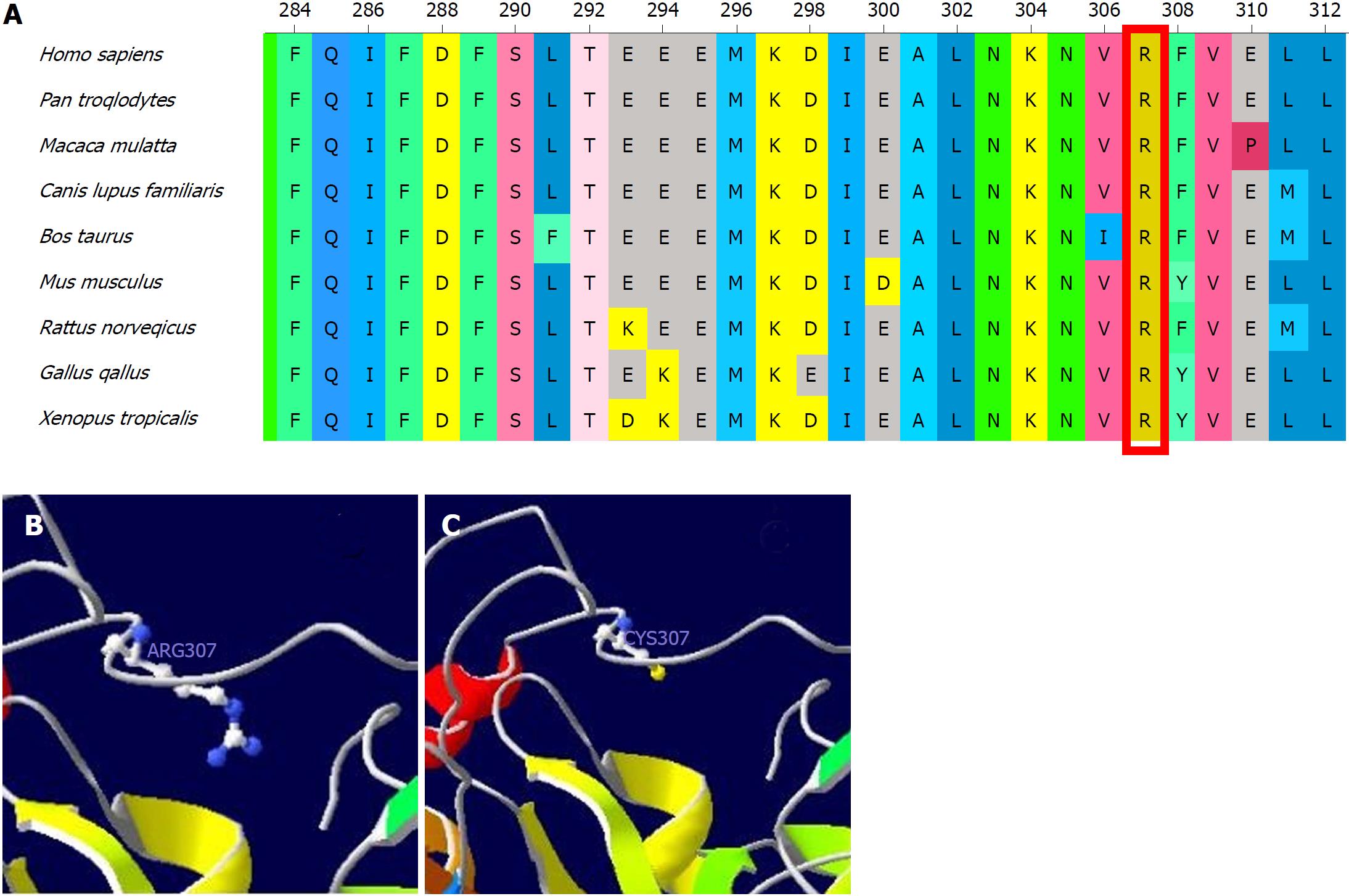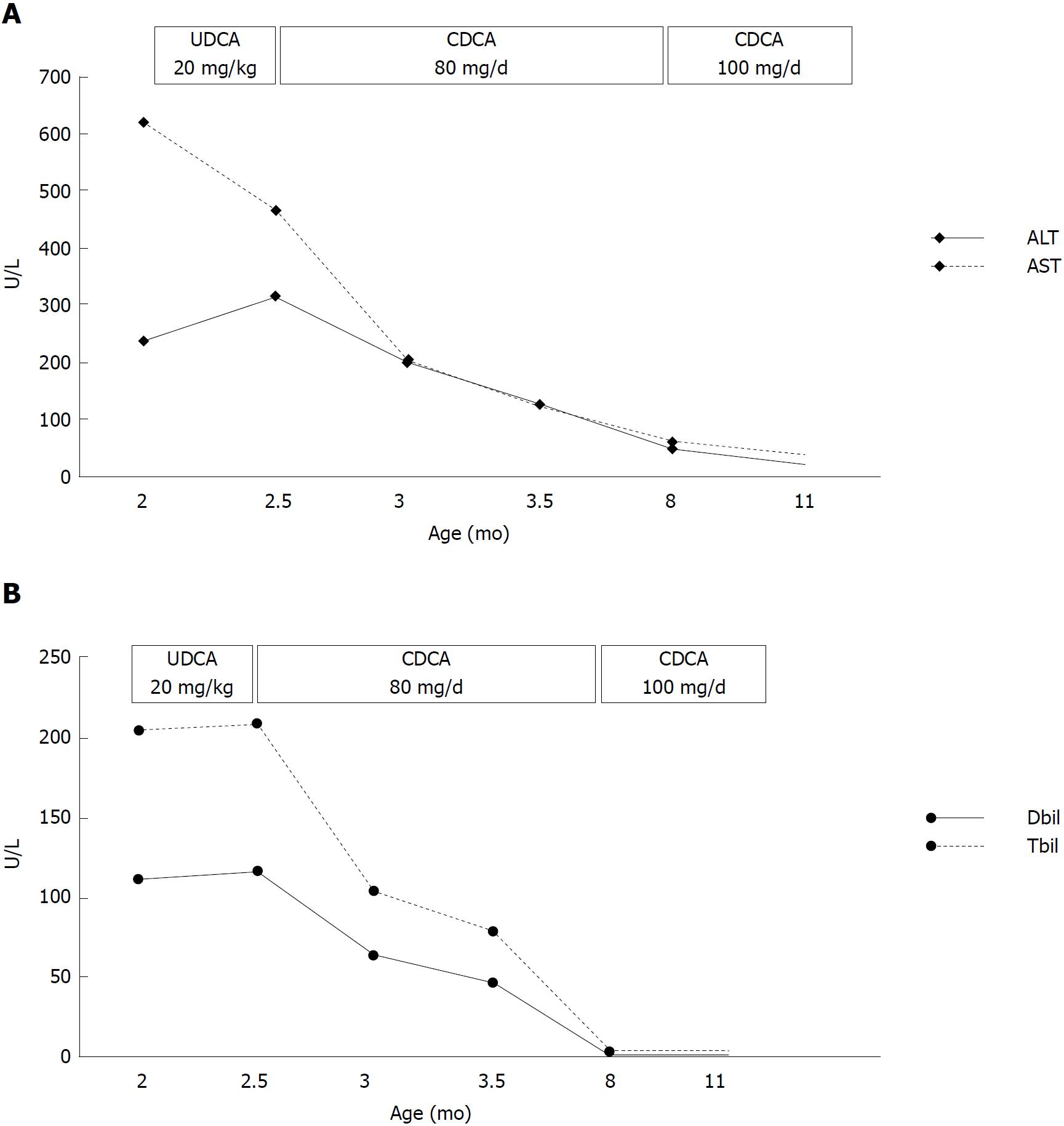Copyright
©The Author(s) 2018.
World J Gastroenterol. Sep 21, 2018; 24(35): 4086-4092
Published online Sep 21, 2018. doi: 10.3748/wjg.v24.i35.4086
Published online Sep 21, 2018. doi: 10.3748/wjg.v24.i35.4086
Figure 1 Genomic DNA sequences in exon 8 of the AKR1D1 gene in the patient and his family.
A: Compound heterozygote in the patient (c.919C > T, R307C); B: No variant in his father; C: Heterozygote in his mother; D: Heterozygote in his brother; E: Loss of heterozygosity in exons 1-9 of AKR1D1 in the patient. AKR1D1: Aldo-ketoreductase family 1 member D1.
Figure 2 Multiple sequence alignments from different species and structural model of the aldo-ketoreductase family 1 member D1 protein.
A: Multiple sequence alignments; the red outline in the alignments shows the amino acid affected by the mutation; B: Wild-type model; C: The mutant model shows the alteration of the amino acid side chain caused by the R307C mutation.
Figure 3 Responses of liver function after treatment with ursodeoxycholic acid and chenodeoxycholic acid.
A: Transaminase 1; B: Bilirubin. UDCA: Ursodeoxycholic acid; CDCA: Chenodeoxycholic acid.
- Citation: Wang HH, Wen FQ, Dai DL, Wang JS, Zhao J, Setchell KD, Shi LN, Zhou SM, Liu SX, Yang QH. Infant cholestasis patient with a novel missense mutation in the AKR1D1 gene successfully treated by early adequate supplementation with chenodeoxycholic acid: A case report and review of the literature. World J Gastroenterol 2018; 24(35): 4086-4092
- URL: https://www.wjgnet.com/1007-9327/full/v24/i35/4086.htm
- DOI: https://dx.doi.org/10.3748/wjg.v24.i35.4086











